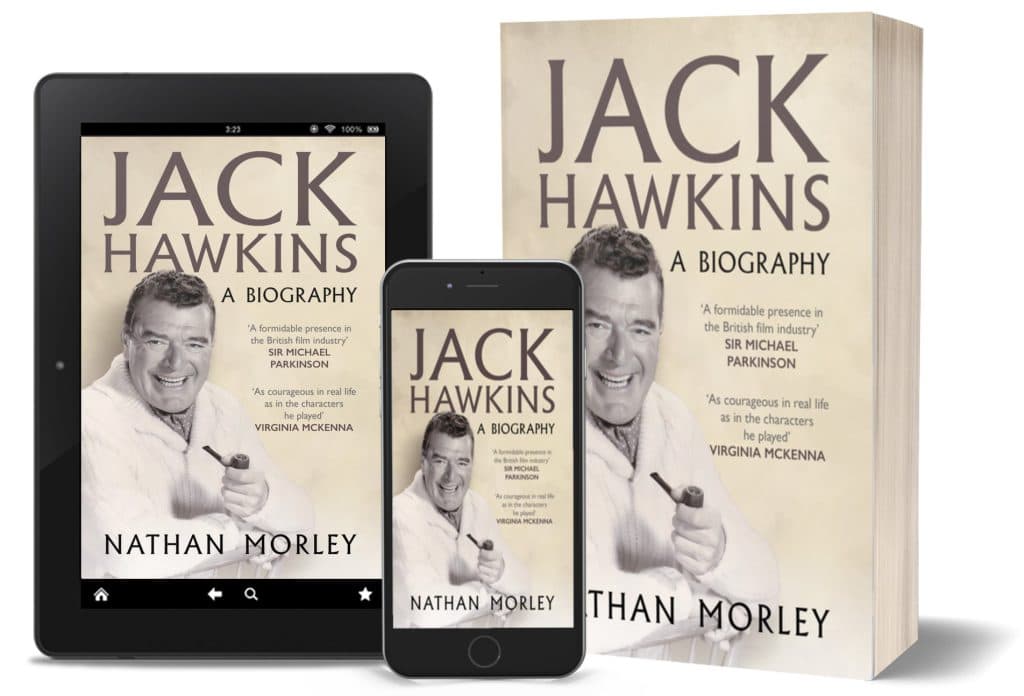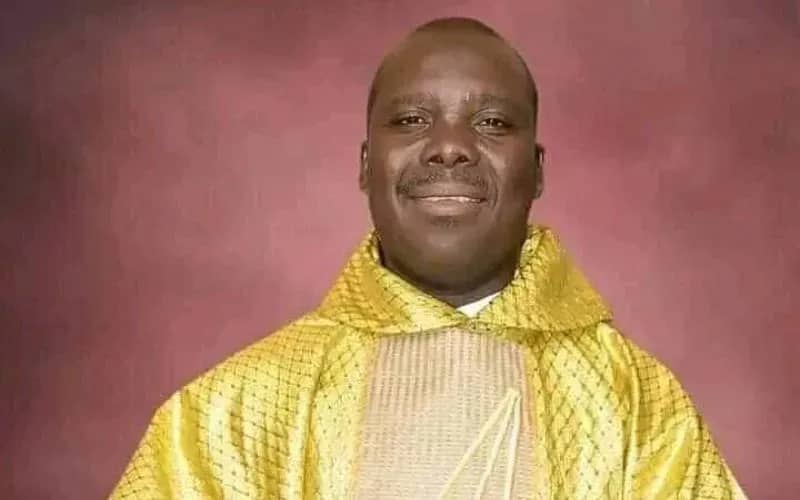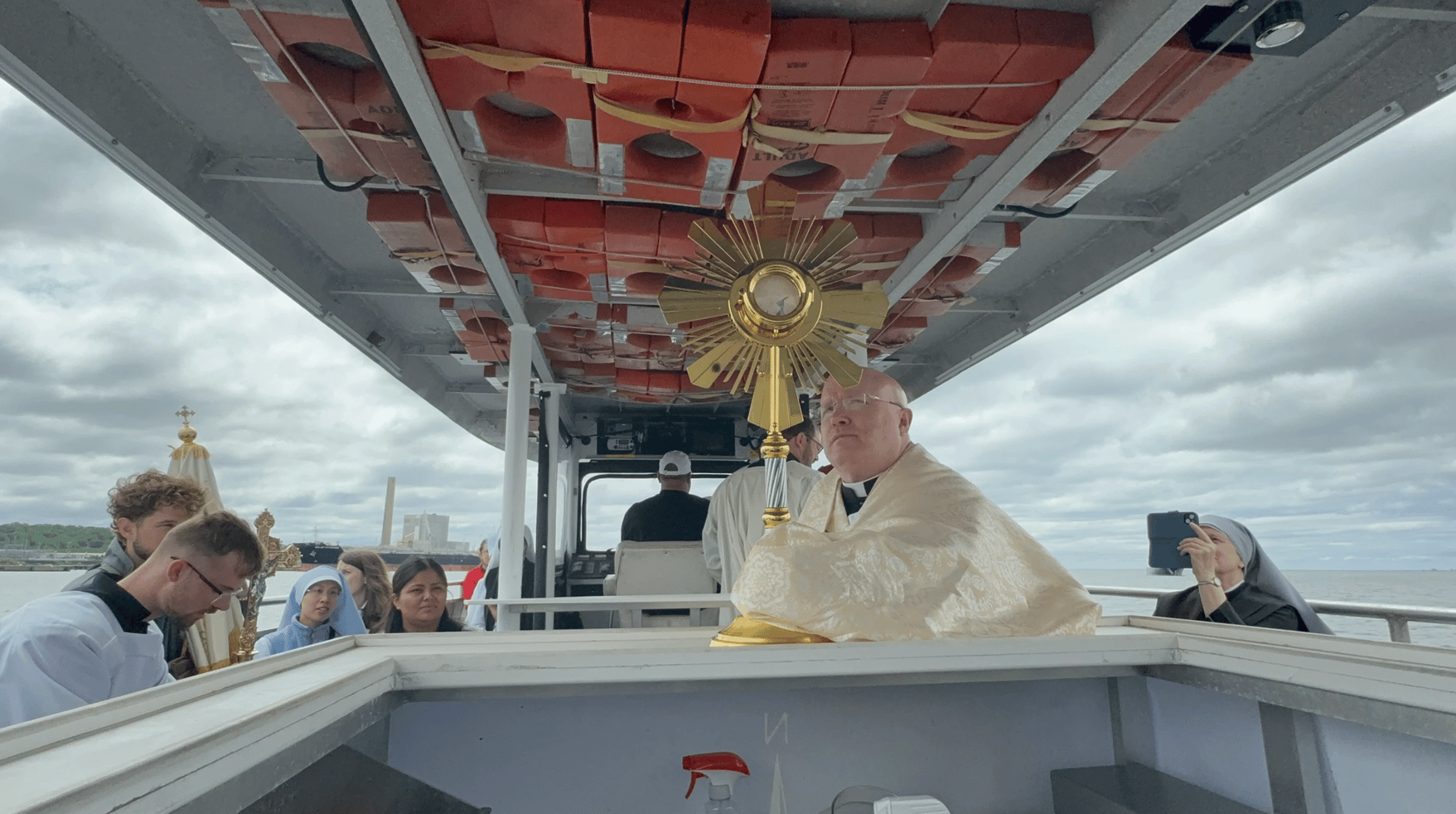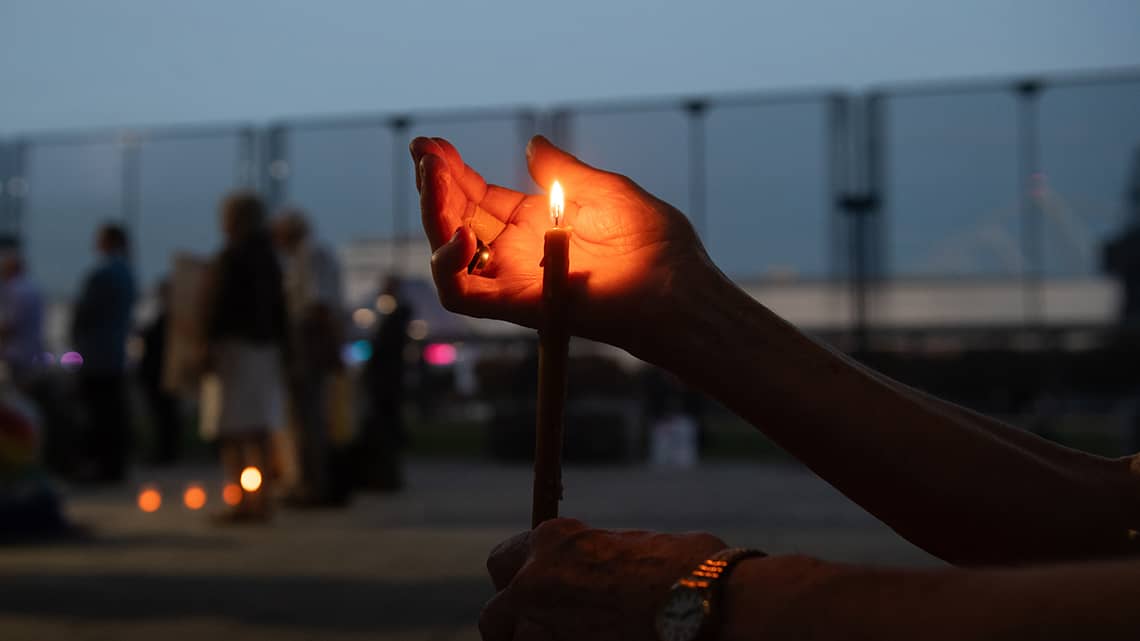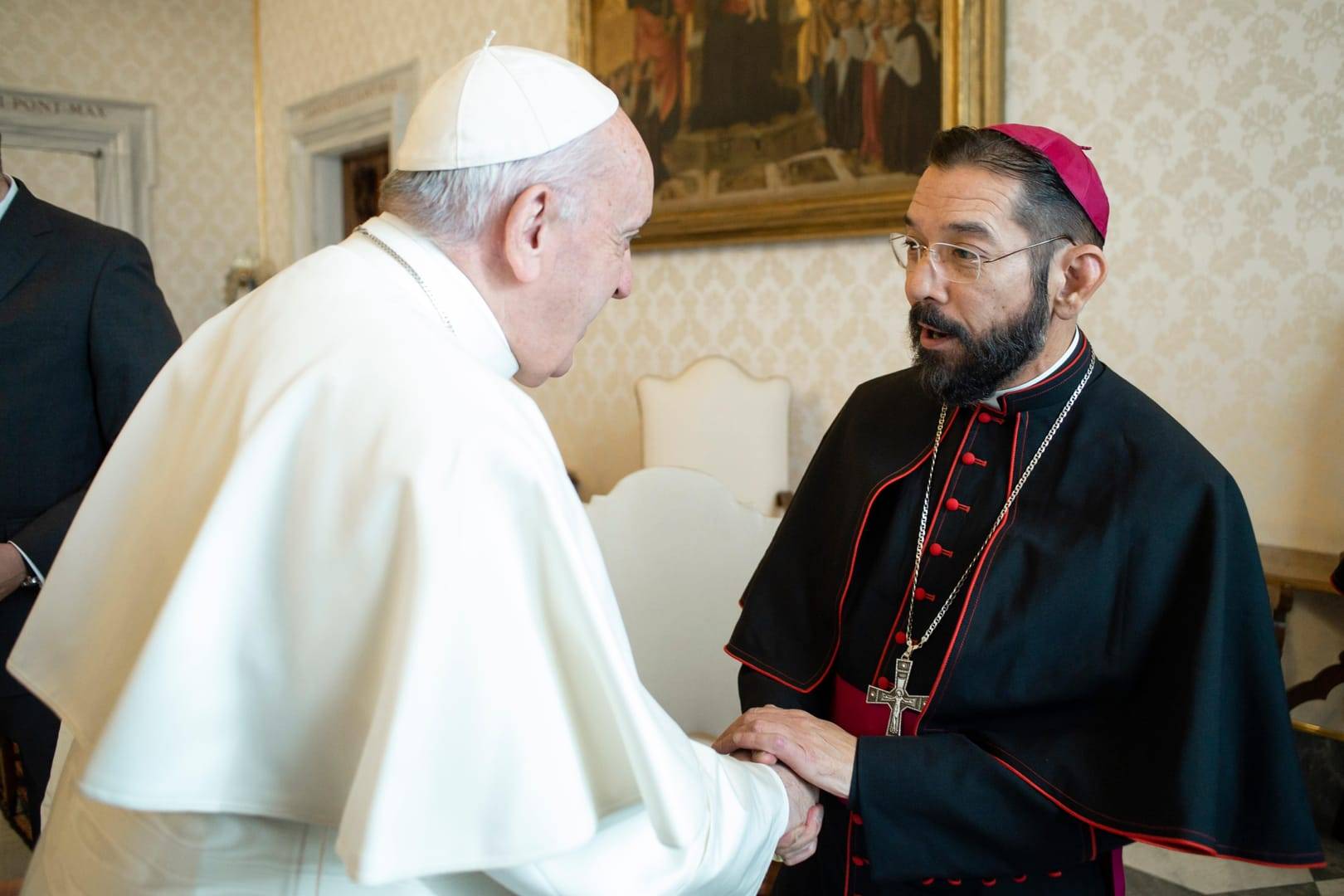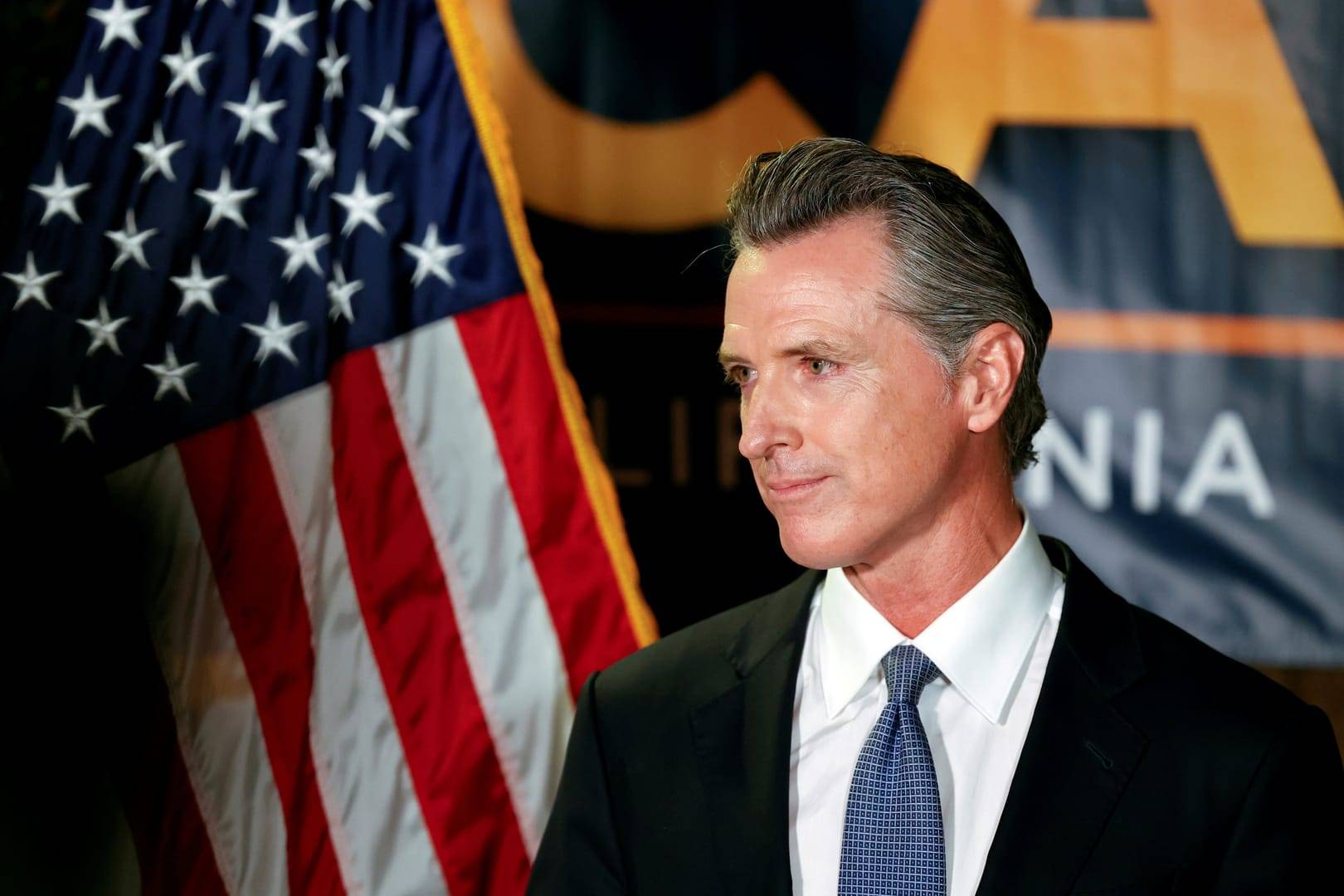LEICESTER, United Kingdom – For many people, the Golden Age of religious themes in film was the mid-20th century, which saw films such as Ben-Hur and The Ten Commandments come out.
One actor that appeared in many such films – including Ben-Hur – was Jack Hawkins, the British man who also appeared in The Cruel Sea, Bridge on the River Kwai, Lawrence of Arabia, and Zulu.
In his new book Jack Hawkins: A Biography, Nathan Morley says the actor – who lived 1910 to 1973 – was the living embodiment of British ruggedness, resilience, humor, uprightness, and compassion on and off the screen.
Hawkins also featured in The Prisoner, a 1955 film starring Alec Guinness, about a cardinal in an unnamed communist country.
Speaking to Crux, Morley said although it was “brilliant, it was never really a popular picture.”
“Jack played the part of a cultured ex-aristocrat turned mastermind of a crypto-communist police state. At the time, British writers had discovered the Cold War, with Bolsheviks and Communists replacing the Nazis. Jack’s role represented a dramatic change in his screen persona, uncovering his darker capabilities,” the author said.
“However, as many critics recognized, the film was a barbed critique of authoritarian regimes in Eastern Europe. For that reason, I think, it never really saw much of an outing on television and has been largely forgotten,” Morley added.
Morley’s book features contributions from Virginia MacKenna, Peter McEnery, Derren Nesbitt, Michael Jayston and many others.
The forward is written by Robert “Bobby” Henrey, who as a child actor, played the son of the French ambassador to London in the classic 1948 English film The Fallen Idol, directed by Carol Reed.
Henrey currently serves as a Catholic permanent deacon in the United States.
“His own story is equally interesting,” Morley told Crux.
“With his brief film career over, it was whilst working as a tax consulting partner in New York that he was ordained as a deacon in 1984 and went on to serve as an interfaith chaplain at Greenwich Hospital a few years later. At St. Catherine’s, he was active in several ministries, including the parish’s baptismal program, and outreach to the French-speaking and Hispanic communities,” he said.
Below is a full transcript of Crux’s interview with Nathan Morley.
Crux: Hawkins made a lot of movies with religious themes. One of the least well-known is The Prisoner starring Alec Guinness, about a cardinal in a communist country in the 1950’s. Can you tell me a little about this, and why you think it has been a bit lost in history?
Morley: Though brilliant, it was never really a popular picture.
At the time of release, its underlying political comment proved sufficient to have it banned from Cannes and pulled from the Venice Film Festival after being dubbed “so anti-Communist that it would be offensive to Communist countries.” As you know, The Prisoner, is a gritty, emotional story of a Roman Catholic cardinal arrested for treason and thrown into prison inside the Iron Curtain. Jack played the part of a cultured ex-aristocrat turned mastermind of a crypto-communist police state.

At the time, British writers had discovered the Cold War, with Bolsheviks and Communists replacing the Nazis. Jack’s role represented a dramatic change in his screen persona, uncovering his darker capabilities. Alec Guinness, playing the cardinal—with a shaven head, donned in traditional bishop’s attire with rochet, chimere, and pleated cuffs—gave a masterly characterization of the cardinal enduring a mental wrestling match. And as you might know, Guinness, was a devout catholic in real life.
However, as many critics recognized, the film was a barbed critique of authoritarian regimes in Eastern Europe. For that reason, I think, it never really saw much of an outing on television and has been largely forgotten.
He was also in Bonnie Prince Charlie and Ben Hur. What are the films you think a religious viewer would most be interested in?
In 1967, one of Jack’s leanest years – remember he had lost his voice to cancer and was restricted in his choice of roles – he accepted a job from the “Council of the Churches of Christ in the United States” which bankrolled a religious short, titled Stalked, for the Lutheran Churches of America.
For some reason, probably because there is no dialogue, he was chosen to portray a man alienated and withdrawn from the world trying to escape God by travelling abroad but, as the production notes detail, “finds he is unable to escape God’s love.”
It was skillfully directed by prolific Christian filmmaker Rolf Forsberg and shooting took place in Amsterdam, London, and Madrid. You’ll find it on Youtube. Obviously, his portrayal of Quintus Arrius in the swords-and-sandals epic Ben-Hur, is probably his best-known religious feature. It came during a rebirth of interest in biblical costume pieces. The film became a genuine phenomenon and not only saved MGM from financial disaster but was also nominated for twelve Academy Awards, winning an unprecedented eleven.
Incidentally, you mention Bonnie Prince Charlie. The star of the picture, David Niven, lamented that the film was a huge, “florid extravaganza that reeked of disaster from the start.” He was right.
What do you think is the most interesting – but little known – story you encountered?
While in New York during 1939, Jack – still a young man – personally secured the rights to the play Family Portrait by Lenore and William Joyce Cowen – a study of Jesus of Nazareth as His family knew Him. Jesus Himself does not appear on the stage but His personality is felt throughout. Far from shocking religious people, Jack felt that it would give a new reality and beauty to the personality of Christ. However, by the time he started to work on production in London, the war broke out and the project was never revived.
The book has a forward by his child costar Bobby Henrey – now 84-years-old – who is now a Catholic deacon. What’s the background on this?
Robert was a fine child actor. Known professionally as Bobby Henrey, you’ll probably remember him as the son of the French ambassador to London in the classic 1948 English film The Fallen Idol, in which Jack delivered a nimble performance as a sharp-nosed police officer, Detective Ames. Bobby provides a lovely foreword for my book. His own story is equally interesting.

With his brief film career over, it was whilst working as a tax consulting partner in New York that he was ordained as a deacon in 1984 and went on to serve as an interfaith chaplain at Greenwich Hospital a few years later. At St. Catherine’s, he was active in several ministries, including the parish’s baptismal program, and outreach to the French-speaking and Hispanic communities. He was also a member of the Siena Commission on Aging, visiting with homebound parishioners in the Old Greenwich area.
Finally, What is your favorite Hawkins film?
In all, Jack made fifty-six films, but, for me, The Cruel Sea alone ensured his place in cinema history. The picture provides a brutal examination of the wartime horrors faced by sailors and touched on powerful themes such as death, fidelity, and friendship – it was, in my opinion, Jack’s finest cinematic performance.
Follow Charles Collins on X: @CharlesinRome
